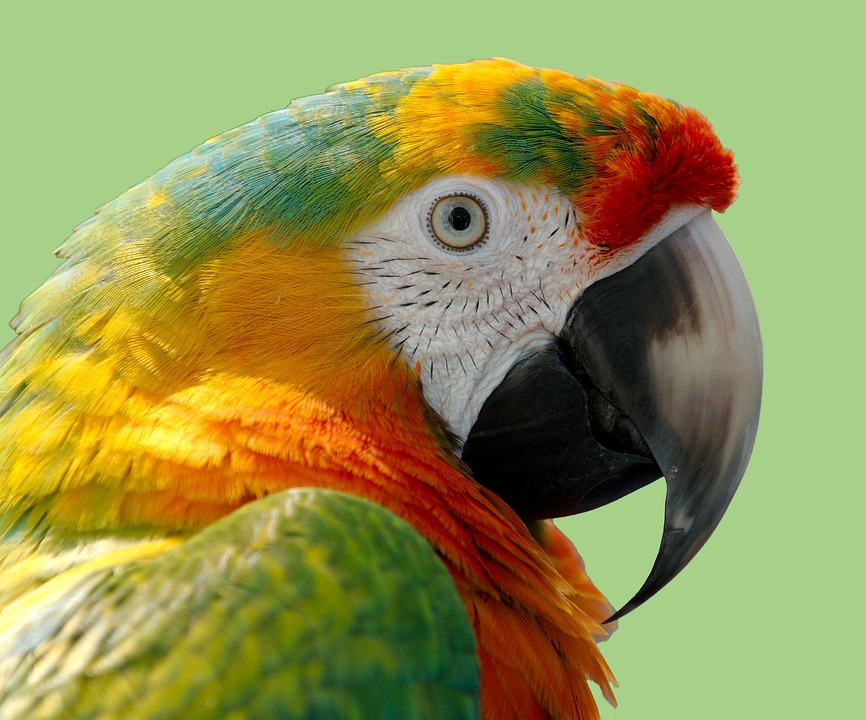Parrots are intelligent and social creatures, often known for their playful and affectionate nature. However, some parrots may develop behavioral issues such as biting, which can be distressing for both the bird and its owner. Understanding the reasons behind parrot biting and implementing effective preventive measures can help create a harmonious and trusting relationship with your feathery friend. In this article, we will delve into the various causes of parrot behavior biting and provide practical tips to prevent and manage this behavior.
Parrots are highly social animals that thrive on companionship and mental stimulation. They communicate through various behaviors, including biting, which can be a normal part of their repertoire. However, excessive or aggressive biting can indicate underlying issues that need to be addressed. By gaining a deeper understanding of parrot behavior, owners can effectively prevent biting incidents and foster a trusting bond with their feathered companions.
Biting in parrots can stem from various factors. Identifying the root cause is crucial in order to implement effective preventive measures. The following are some common causes of parrot behavior biting:
**Fear and Insecurity**
Parrots, like any other animal, may resort to biting when they feel threatened or scared. Fearful parrots might bite as a defensive mechanism to protect themselves from perceived dangers. Understanding and addressing their fears can help minimize biting incidents.
**Lack of Socialization**
Parrots require early and ongoing socialization to develop proper behavior skills. If a parrot hasn’t been adequately exposed to various people, animals, and environments during their critical socialization period, they may exhibit fear-based biting behaviors due to their lack of familiarity.
**Hormonal Changes**
During breeding seasons or hormonal fluctuations, parrots may become more territorial, possessive, or aggressive. This change in behavior can lead to biting, particularly when the bird perceives a threat to their perceived territory or mate.
**Territory and Possessiveness**
Parrots are known to be highly protective of their living space, toys, or food. When they feel their territory is being invaded or their possessions are under threat, they may resort to biting as a defensive reaction.
**Health Problems**
Parrots in pain or discomfort may resort to biting as a way to communicate their distress. It’s essential to regularly monitor their health and consult an avian veterinarian if there are any signs of illness or discomfort.
**Past Trauma or Negative Experiences**
Parrots that have experienced past trauma or negative interactions with humans may develop biting behaviors as a result of their fear or distrust. Patience, positive reinforcement, and building trust gradually can help overcome these issues.
While each parrot is unique, there are several preventive measures that can significantly reduce biting incidents. By following these tips, you can create a safe and enjoyable environment for your parrot:
**Creating a Safe and Stimulating Environment**
Providing a secure and enriching habitat for your parrot helps reduce stress and anxiety, minimizing the likelihood of biting. Offer a spacious cage, plenty of toys, perches of varying sizes, and opportunities for mental stimulation through puzzles and foraging activities.
**Consistent and Positive Reinforcement Training**
Using positive reinforcement techniques, such as rewarding good behavior with treats or praise, can encourage desirable behavior and create a cooperative bond with your parrot. Consistency is key when it comes to training, so establish clear rules and boundaries that are consistently enforced.
**Regular Socialization and Enrichment Activities**
Expose your parrot to a variety of people, animals, and environments from an early age to help them develop social skills and confidence. Regular interaction and engaging enrichment activities, such as supervised out-of-cage time and interactive toys, can prevent boredom and reduce the likelihood of biting.
**Establishing Boundaries and Consistent Rules**
Clearly communicate and enforce boundaries with your parrot. Teach them the meaning of “no” and redirect their behavior to appropriate alternatives. Consistency in enforcing rules helps your parrot understand what is expected of them, reducing the likelihood of biting.
**Maintaining a Healthy Diet and Environment**
A balanced diet plays a vital role in parrot behavior. Ensure your parrot receives a nutritionally complete diet with a variety of fresh fruits, vegetables, pellets, and appropriate treats. A healthy bird is less likely to exhibit aggressive behaviors.
**Seeking Professional Help, if Necessary**
If your parrot’s biting behavior persists despite your best efforts, it may be beneficial to consult with an avian veterinarian or an experienced parrot behaviorist. They can provide tailored advice and guidance specific to your parrot’s needs.
In conclusion, understanding the root causes of parrot behavior biting and implementing preventive measures can help create a safe and trusting environment for your feathered companion. By providing a stimulating and nurturing habitat, consistent training, regular socialization, and maintaining a healthy diet, you can significantly reduce biting incidents. Remember, each parrot is unique, and it may take time and patience to address biting behaviors. With the right approach and professional guidance, you can build a strong bond with your parrot based on trust and understanding.









